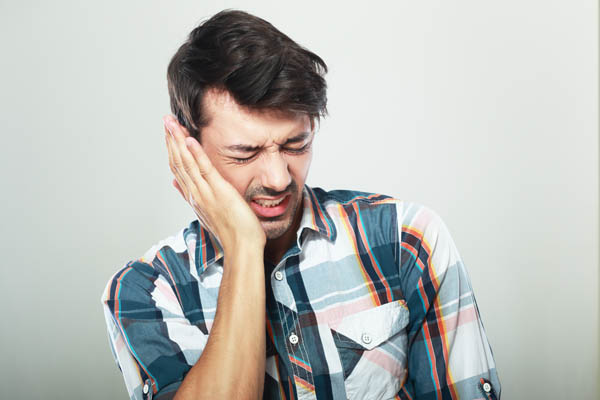Medication Treatments for TMJ

TMJ disorder is not a pleasant condition and can cause pain and discomfort. Although there are many contributing factors to TMJ disorder, there are different treatment options to correct and treat it, including medications. Sometimes symptoms of TMJ disorders disappear without treatment, but if they do not, you may get prescriptions to relieve the condition.
Medication treatments for TMJ disorder
Patients need to confirm with their healthcare provider before starting any medication, even if it is over-the-counter. Some medications have side effects such as weight gain or drowsiness, and some may interfere with any other medication the patient is using.
The dentist will probably have the patient try an over-the-counter medication before prescribing a drug. If the over-the-counter meds are not effective enough to alleviate jaw pain and other symptoms of TMJ disorder, the doctor will recommend a more powerful medication to ease the condition.
Over-the-counter medications
Acetaminophen can help relieve jaw pain momentarily, but it does not treat inflammation. Nonsteroidal anti-inflammatory drugs (NSAIDs) are effective for controlling both inflammation and jaw pain in TMJ temporarily. A type of NSAID drug is ibuprofen. Anti-inflammatory drugs are usually recommended to relieve pain and swelling if the inflammation of the TMJ is causing soreness.
Prescription medications
Muscle relaxants may be used sometimes to relieve jaw pain and discomfort caused by a TMJ disorder. They function by relaxing the muscles in the face and jaw, and they help reduce muscle spasms. Since muscle relaxants are powerful drugs, patients will usually only have to take them for some days or a few weeks at a time. Diazepam is an example of a muscle relaxant used for treating the condition.
Tricyclic antidepressants can help alleviate discomfort caused by TMJ disorder. Patients do not need to have a history of depression to get an antidepressant. These drugs act by altering how the body perceives pain. An example of a tricyclic antidepressant is amitriptyline.
Corticosteroids may be recommended in case of severe jaw pain and inflammation. However, they are hardly ever used for treating TMJ disorders. If the patient needs them, the corticosteroid will be injected into the joint to provide substantial relief temporarily. An example of a corticosteroid is triamcinolone.
Botulinum toxin, or Botox, is another option for treating pain related to TMJ. Many experts believe injecting a small dose of Botox into the jaw muscles can relieve symptoms of the condition.
A point to consider
It is important to follow the recommendations for prescription drugs to prevent unwanted side effects. Patients need to inform their dentist immediately if they notice any adverse side effects. They may adjust the current drug or recommend alternative medications.
Do you suffer from TMJ disorder?
The medications to use for managing TMJ disorder depend on the severity of the symptoms. Consult a dentist to know the appropriate medication for you. Also, be aware that medications are not a cure for TMJ disorder, but they can remarkably relieve the pain and discomfort associated with this condition.
Request an appointment here: https://creatingsmiles.dental or call Creating Smiles Family Dental PC at (973) 302-2082 for an appointment in our Bloomfield office.
Check out what others are saying about our dental services on Yelp: TMJ Dentist in Bloomfield, NJ.
Recent Posts
TMJ disorders are known to be one of the most grueling, as they induce a lot of discomfort and difficulty eating. However, modern-day technology has allowed for a wide range of options when it comes to treatment plans. Working with a general dentist is typically the first step. As surprising as it may be, general…
A damaged dental crown can disrupt daily life and put the underlying tooth at risk for further complications. When a dental crown chips, loosens, or breaks entirely, prompt action can help prevent discomfort, infection, or more extensive dental work. Understanding the proper steps to take ensures the best chance of preserving oral health and restoring…
Dental bridges replace missing teeth, restoring smile appearance and bite function. They are noninvasive tooth replacements that rely on the surrounding teeth or dental implants for support. A general or cosmetic dentist will create a dental bridge custom-fit to the patient’s smile, ensuring a natural-looking restoration and optimal oral health.Dental bridges are named for the…
Some dentists offer Botox® for TMJ symptom relief. Although it is not yet approved by the U.S. Food and Drug Administration (FDA), the results in studies thus far have been very promising, with many patients reporting symptom relief for their TMJ in as little as just a few days. As is the case with any treatment,…
